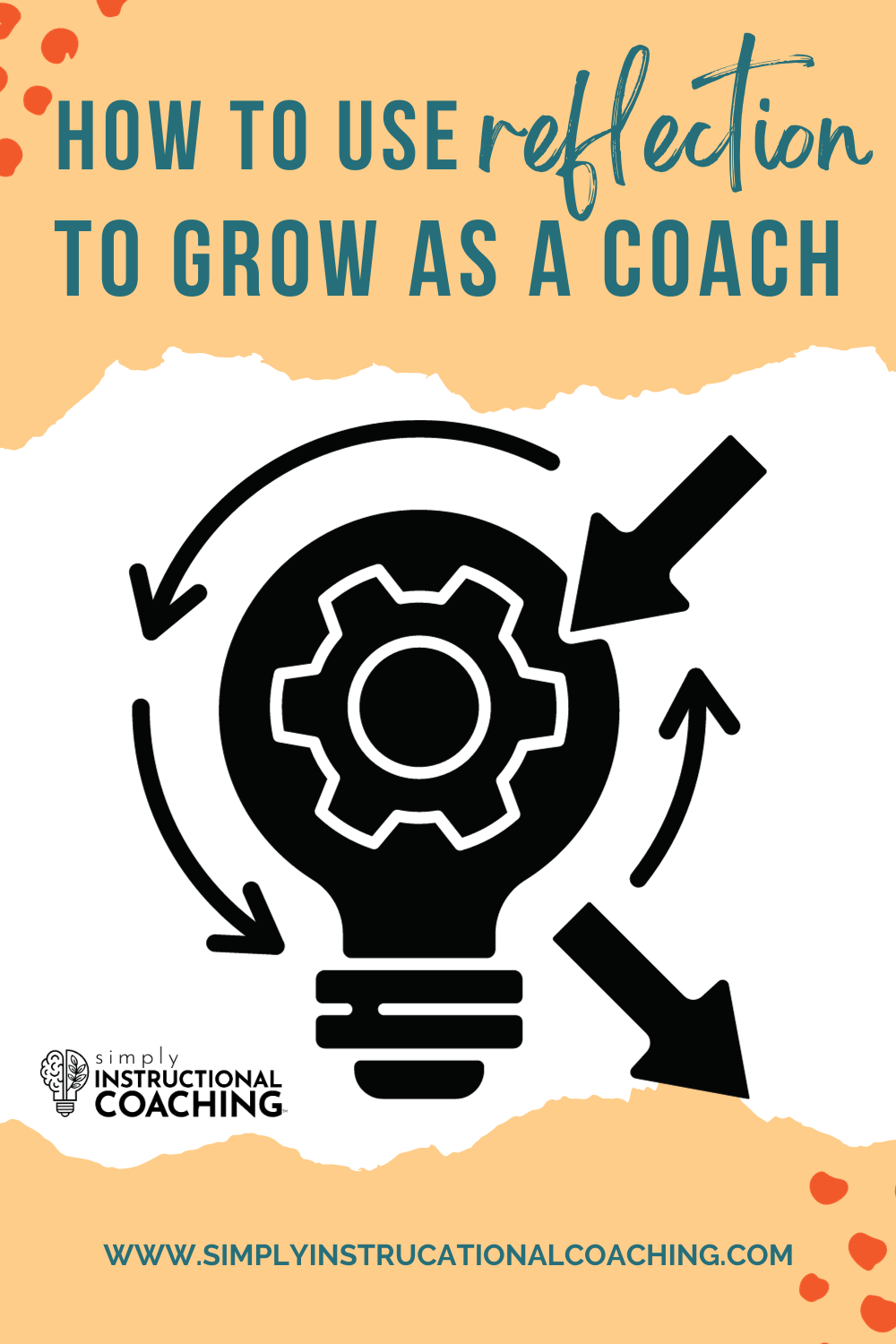
Last week I gave a feedback survey to my teachers, asking how they would like to spend our end-of-year wrap-up. More than half of them responded that they wanted an opportunity for reflection on what went well and what didn’t. How great is that?
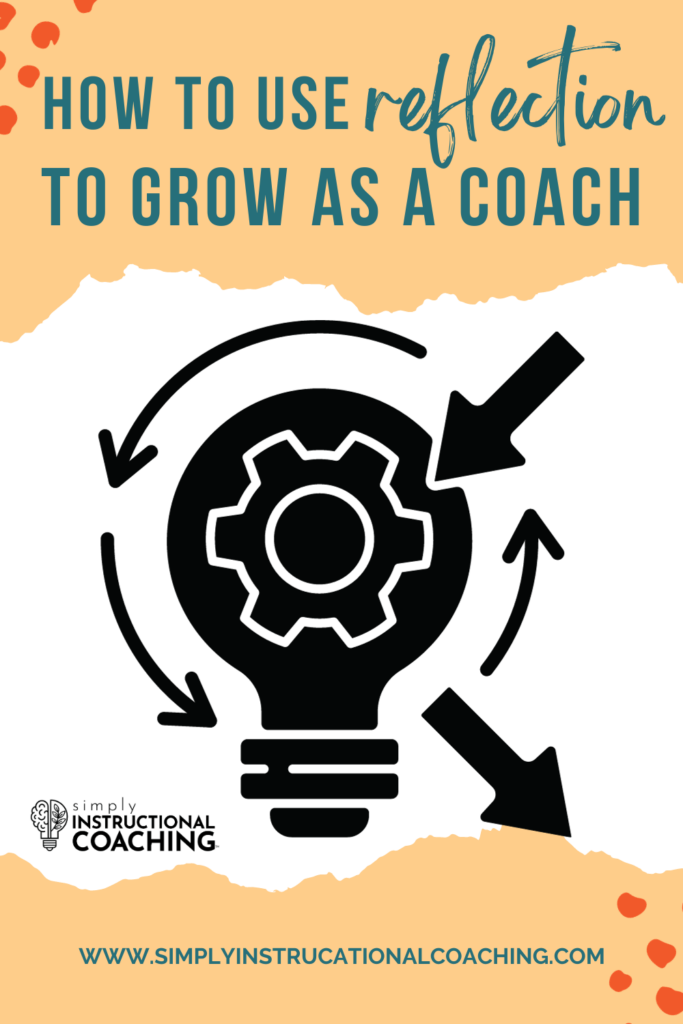
As I thought about the awesome growth mindset that my teachers demonstrated, it occurred to me that I too should be reflecting on my practice.
How can I use reflection to become a better instructional coach?
We should measure our growth through two different lenses: one internal – “how do we think we did?” and one external – “how do others think we did?”
These may not always be aligned. I once gave a PD session on the differences between diagnostic, formative, and summative assessments. My explanations were clear, examples relatable, I had jokes, and analogies! I thought I nailed it. Later, when I sat down with teachers to look at their assessments it was clear that very little of my presentation stuck with them.
The best way to find out what you did well as a coach and where your teachers lacked support is to simply ask them! It can be scary to open ourselves up for feedback, but it really is a necessary evil if we are serious about improving ourselves.
You can either grab mine or create your own. If you create your own, here are some guidelines:
Coaching Reflection Survey Guidelines
Keep it Anonymous
In order to ensure honesty and maintain trust, keep the survey anonymous. Doing so will give teachers the confidence to say something difficult.
Be Respectful of Teachers’ Time
The end of the year is already stressful enough. On top of that, education is a whirlwind field with “to do” lists that stretch for miles. Most people will have no problem completing the survey for you but for some, it will feel like one. more. thing.
If you force teachers to provide feedback when they don’t want to, you will mostly end up with short, unhelpful responses.
When you keep the survey optional, you’ll get feedback from people who feel strongly about you as a coach. You will know their words are sincere.
Provide a Purpose for the Survey
When you send out your survey, make sure you give teachers a purpose so they don’t feel like it’s a waste of time. Here’s an example:
“In order to ensure we are maximizing our effectiveness as a team, I would like you to take this quick survey. It’s important to me to know what I can do to better serve you and your students as well as what I am doing well. I value your feedback and look forward to seeing your suggestions!”
Set a Reasonable Deadline
You don’t want to give people too much time, but you don’t want to rush them either. Allow about a week to ensure that it doesn’t get buried in email or forgotten.
Ask Open-Ended Survey Questions
Questions with a simple “yes” or “no” option don’t give you enough information to truly grow. Try to phrase questions so teachers can rate your performance on a scale of 1 to 5. After each question, create a space for comments so teachers can explain their rating.
Emphasize Goal and Growth Related Survey Questions
When I create surveys, I tend to ask myself, “What is my goal as an instructional coach?” Make sure to ask questions that address the goals you set for yourself as an instructional coach.
One of my coaching goals this year was to take a strengths-based approach with each and every teacher, differentiating my support accordingly. This led me to ask the following questions on my survey:
- My instructional coach leads me in evaluating my instruction and curricular program.
- My instructional coach introduces me to new ways to do things better.
- My instructional coach contributes positively to the improvement of my instruction.
- My instructional coach believes in celebrating instructional and academic improvement.
Include a Wide Range of Survey Questions
Make sure to hit all realms of your duties as an instructional coach. This will be important when you have your final meeting with your principal for the year. You’ll need to know how you performed on each of your assigned responsibilities.
Sample Survey Questions
Here are some additional sample questions you could ask using the 1 to 5 scale. Notice how they address all the different coaching roles.
- My instructional coach communicates clearly with me.
- My instructional coach gives me the opportunity to provide input into activities and programs led by my instructional coach.
- My instructional coach helps me overcome barriers to teaching and learning.
- My instructional coach helps me to identify and solve problems.
- My instructional coach maintains confidentiality between us.
- My instructional coach communicates information clearly and concisely.
- My instructional coach maintains open, two-way communication with me.
- My instructional coach assists in developing appropriate student assessments.
- My instructional coach communicates the importance of focusing on the needs of students.
- My instructional coach conducts planning, modeling, and feedback sessions with me.
- My instructional coach helps to create a school environment conducive to increasing achievement.
- My instructional coach works with me to ensure that program standards, instruction, and measures of learning are aligned.
- My instructional coach assists me in instructional planning.
- My instructional coach models research-based instructional procedures and helps me to implement these procedures.
- My instructional coach has helped me reach my professional goals.
- My instructional coach has helped me perform better.
- My observations and feedback have helped me grow as a teacher.
- I have gained helpful resources from my coach.
- I feel I can ask my coach for resources.
- I trust my coach.
Thank Teachers for their Time
Make sure to show your teachers how much you appreciate their feedback. That could mean, sending a simple email, reaching out to people in person, offering to take a task or duty off their plate, or giving one of these cute FREE “Thank You” cards!
The Internal Reflection
Write in a reflection journal throughout the year. Hopefully, you’ve also been doing weekly reflections in your Coaching Planner! All of this will help you as you prepare for next year. Read through your thoughts about what went well and what did not. This will provide you with a lot of self-development information. There are likely successes and failures that you forgot about in the business of the year, and it’s smart to jot them down as they happen.
How will you grow?
In addition to analyzing the responses from your teachers make sure to reflect on your own practice.
- Specifically, identify what went well this year (eg. coaching cycles, PD delivery, team building, relationship building).
- What changes do I need to make next school year( eg. coaching cycles, PD delivery, team building, relationship building)?
- How will I better connect with my teachers?
- Identify teachers with whom I need to have better partnerships.
- What areas do I want to grow in professionally and personally?
- How do I want next year to be different?
- What do I intentionally need to do to make that happen? (Create a checklist/implementation plan)
The Bottom Line
Remember that feedback is a gift. Reflecting is a necessity for improvement. By combining your survey results, your personal reflection questions and answers, and your reflection journal, you will be able to create a data-driven plan of action that will you a stronger and more refined instructional coach each school year.
Grab the Coaching Surveys to start collecting data to improve your coaching!
(Just click on the picture)

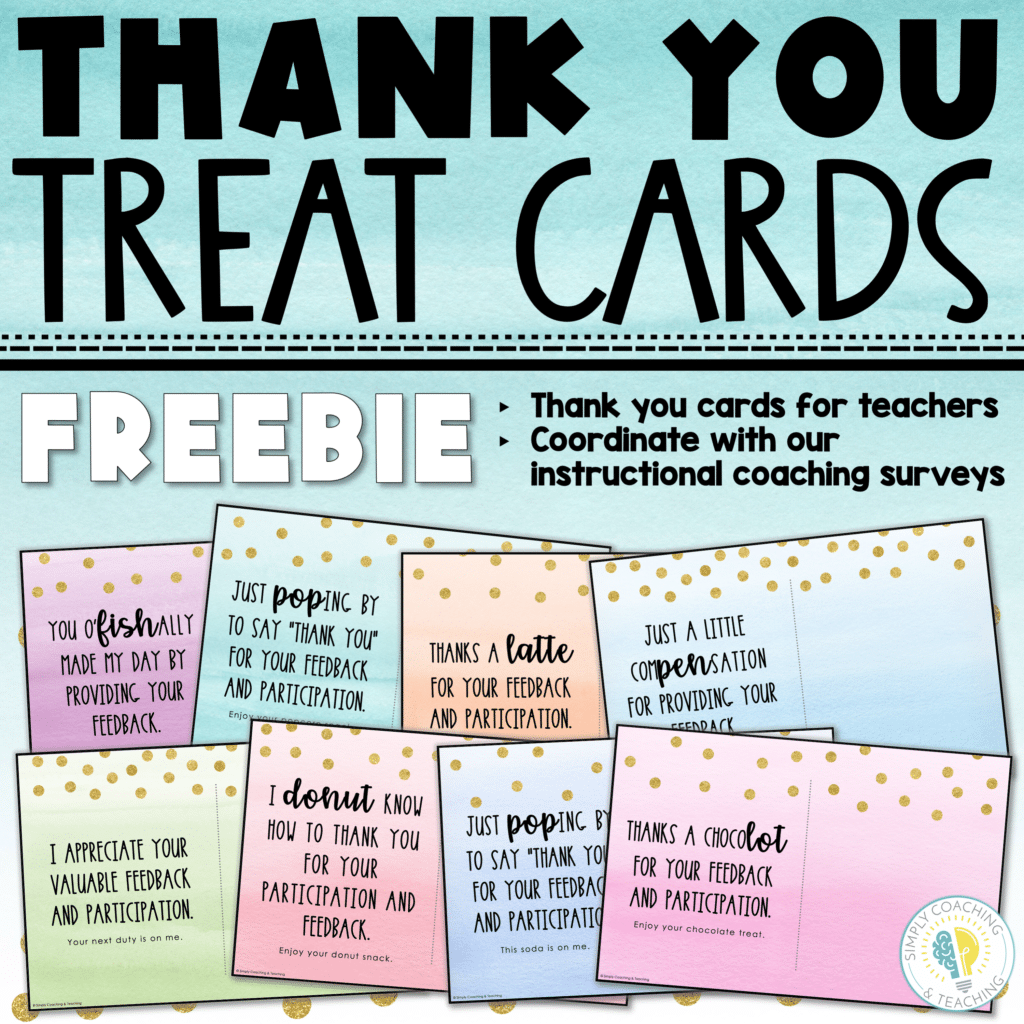
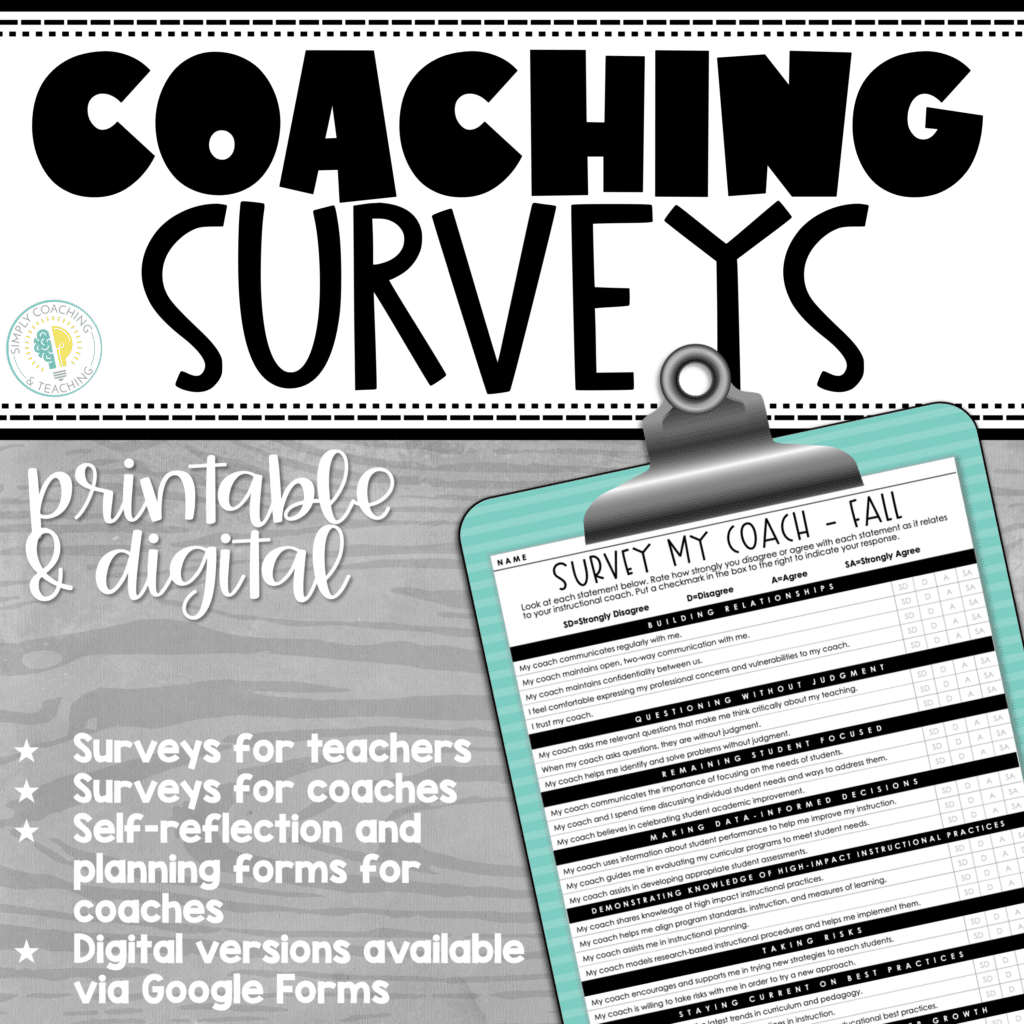
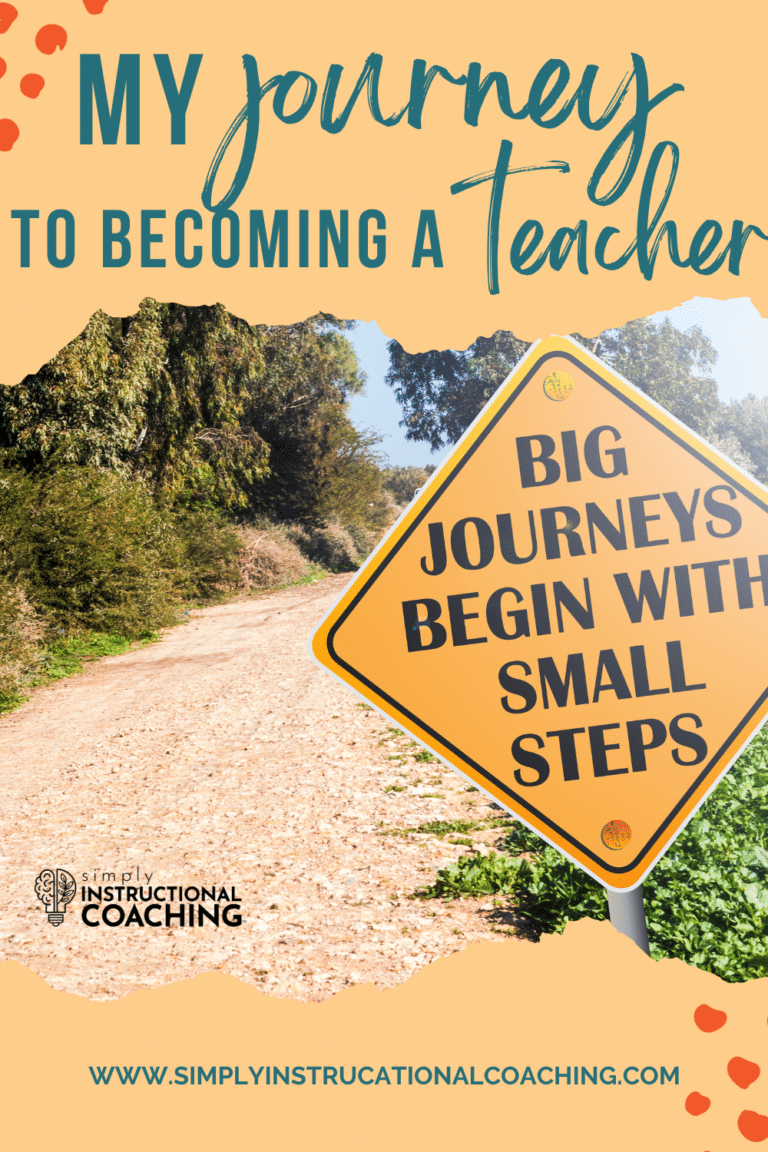
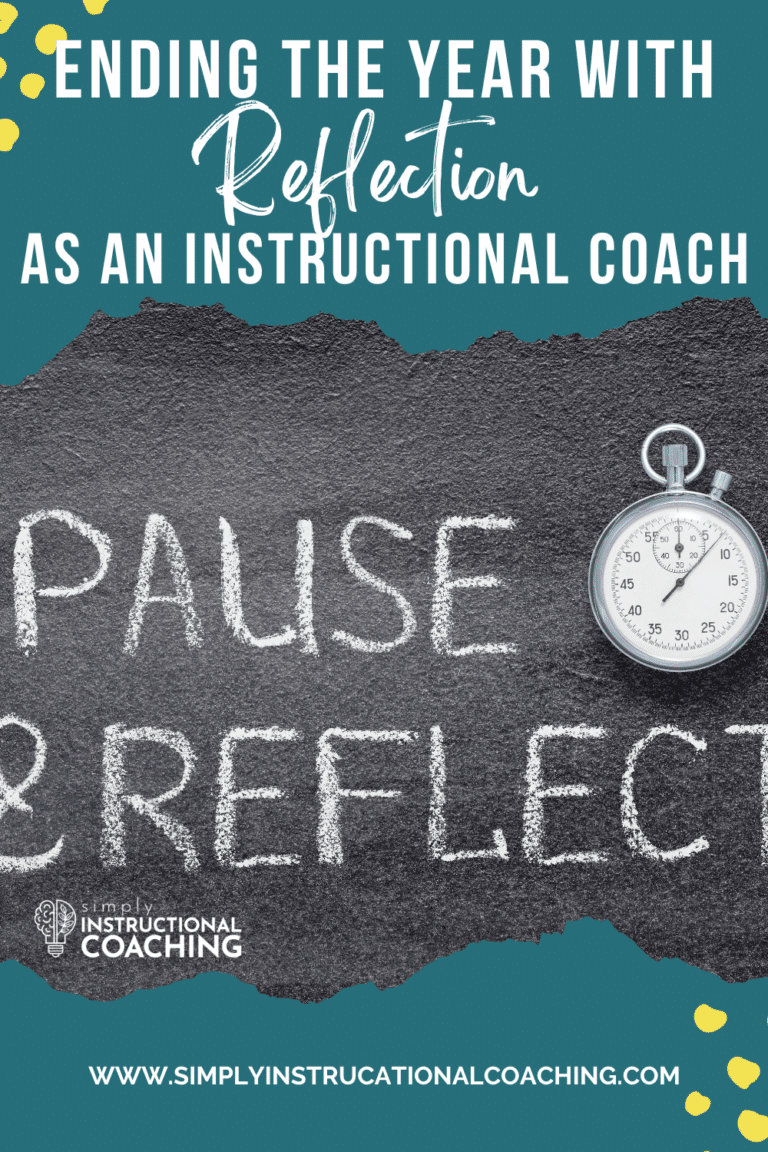

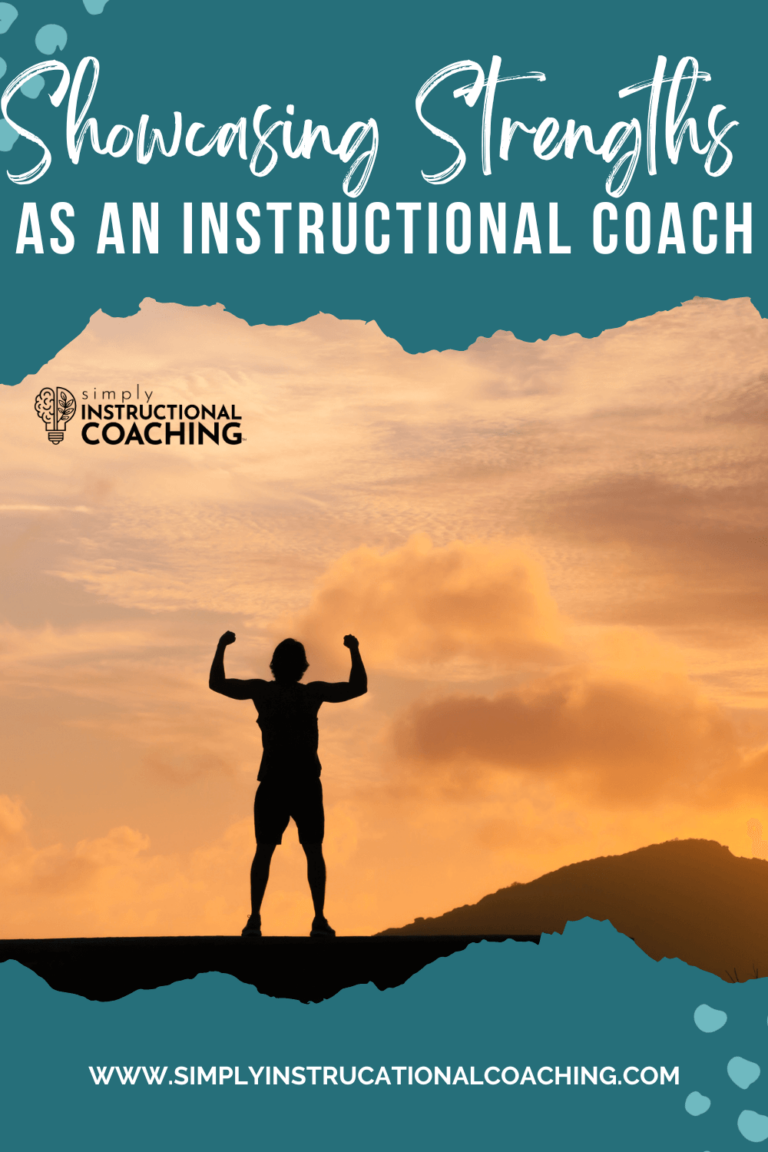
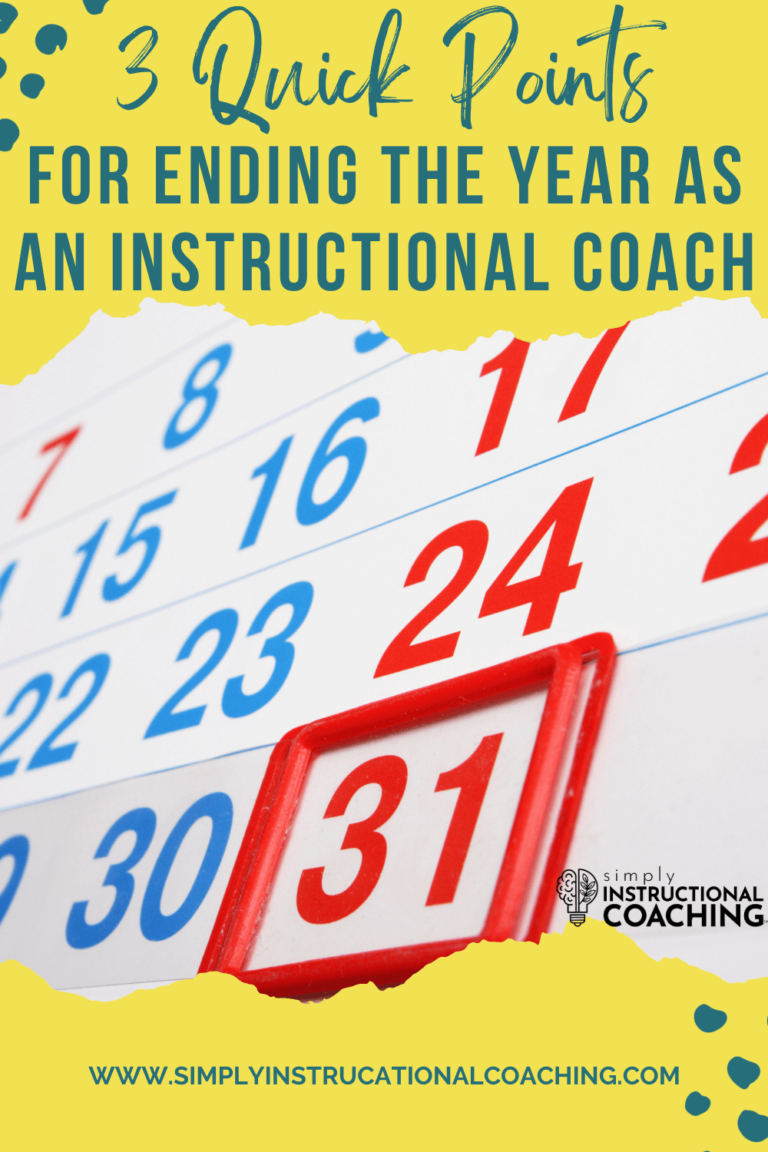
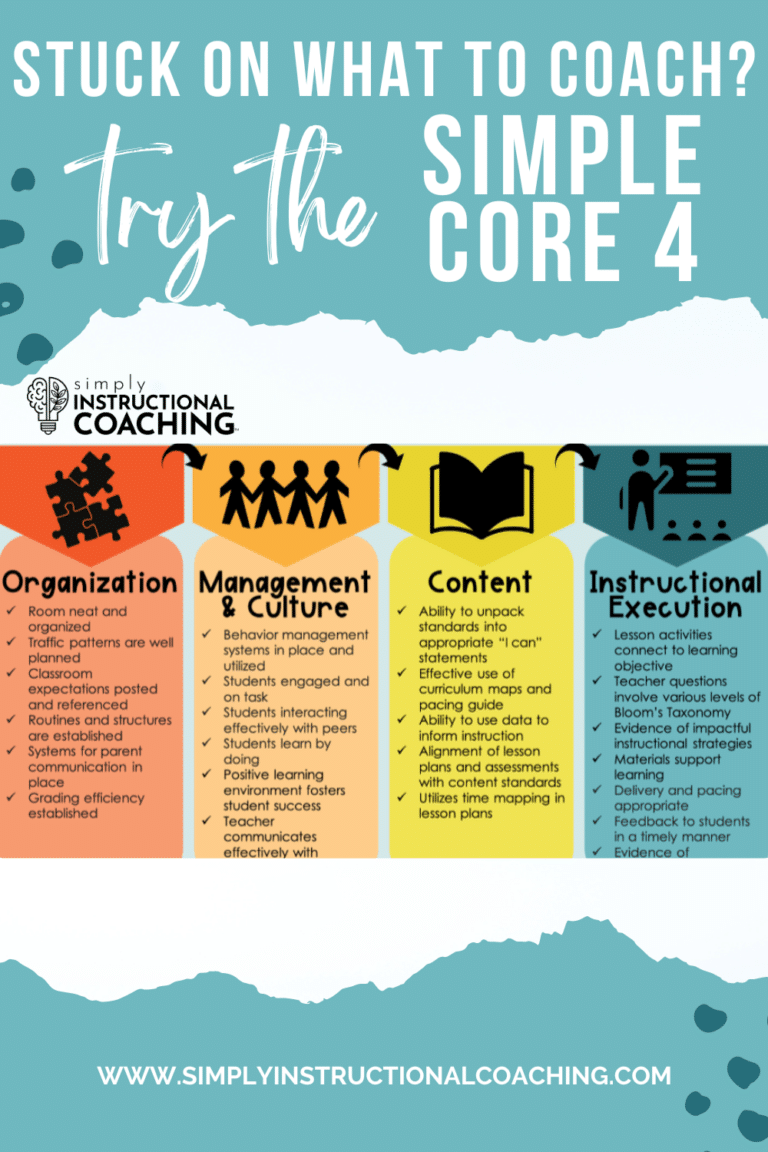
2 Comments